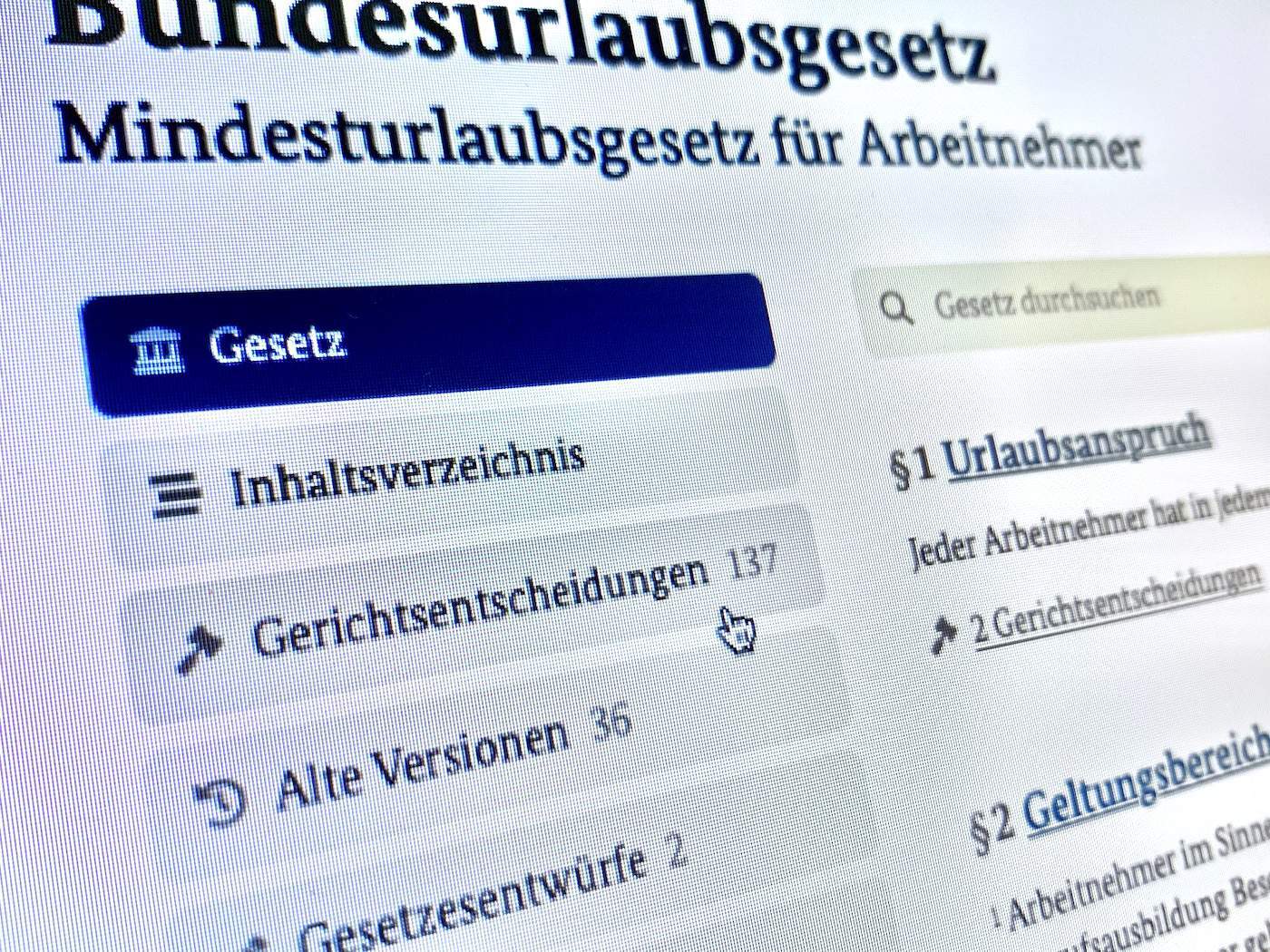
Legal information turn into open data: New project with Federal Ministry of Justice picks up pace
Am I entitled to vacation? Can I reduce my rent if the heating system breaks down? How can I obtain the information I need? Applicable law is the basis for everything that allows our society and social interaction to function properly.
However, your average person faces challenges when trying to access legal information. A central "clearing house" is lacking through which laws, regulations and court rulings can be accessed openly – and above all with ease. Developing such a central location for legal information from the Federal Government is the aim and objective underlying our latest project: NeuRIS – Neues Rechtsinformationssystem (New Legal Information System).
For this to come about, it is necessary to create a government-owned data storage and recording environment that enables Federal Government documentation points to document and access legal information. This means the Federal Constitutional Court, the supreme courts of the Federation, the Federal Patent Court, the Superior Administrative Court of the Land of North Rhine-Westphalia and the Standards Documentation Office.
The project is being carried out jointly with the German Federal Ministry of Justice (BMJ). It is an integral part of the Federal Government's Open Data Strategy.
First ideas emerge in Tech4Germany fellowship 2020
Even today, the Federal Government provides legal information free of charge, but spread out across three different portals: Gesetze-Im-Internet, Rechtsprechung-Im-Internet and Verwaltungsvorschriften-Im-Internet. On these portals, users can find current Federal law, Federal case law handed down by the courts from 2010 onwards and current Federal administrative regulations.
The documents are only outfitted with a skeleton of metadata, rendering an efficient search within the texts virtually impossible. Civil society actors and private sector companies – like LegalTechs for instance – are also on the lookout for modern interfaces that will enable them to reuse the data. These do not yet exist today.
For a long time, the German Federal Ministry of Justice had therefore been interested in consolidating information, restructuring it and making it more accessible and processable.
The first steps in this direction were taken in 2020 as part of our Tech4Germany fellowship program. Within three months, an interdisciplinary team of young Product Managers, Engineers and Designers developed a vision for a legal information portal together with Ministry of Justice staff. At the end of the project, an initial prototype alpha version of the portal including a data interface – Application Programming Interface (API) – and a click prototype went live. The results have been published here.
From prototype to full-fledged legal information system and portal
In 2021, the Federal Ministry of Justice decided to commission DigitalService to make the Federal Government's legal information digitally accessible to everyone on the basis of the previous Tech4Germany ideas.
The implementation of NeuRIS breaks down into two elements: the development of a powerful legal information system (RIS) with data management and a documentation environment and the accompanying legal information portal as a public research system. Employees at the documentation centers are to use the documentation environment created in the RIS to create and maintain the Federation's legal information.
The legal information portal will be accessible to all citizens and create uniform, modern, intuitive, barrier-free and user-friendly access to the information provided. For the first time, all current laws and regulations, court rulings and administrative regulations issued by the Federal Government along with the extensive metadata associated with it all are to be made fully available as open data.
With the development of the portal, the Federal Ministry of Justice will be among other things fulfilling requirements laid down in the German Data Use Act (Datennutzungsgesetz). This implements the European Union's Open Data Directive, which seeks to promote the publication of dynamic data and the creation of data interfaces (APIs).
The approach: interdisciplinary, user-centered, iterative
We are at present commencing our work on NeuRIS. Our team will initially consist of seven employees from the disciplines of product management, design and software development. By the end of the year, it is to grow to about 20 employees.
When creating the technical basis for a Federally owned data storage system, involvement of the documentation offices is key. Their employees will be the main users of this solution. And they expect a highly efficient system with which to manage and update legal information.
In order to keep the focus, we will be starting with the documentation of case law handed down by the courts and at first work with one or two documentation centers to develop the product together. The integration of all other documentation centers will then be completed step by step in the guise of feedback loops and changing focuses.
The goals for the first 12 months
Development is to take place in two-week sprint cycles. Our goal is to be able to productively use the documentation environment with the relevant part of the data management in a documentation center within a span of 12 months. To this end, we will be closely coordinating the scope for the so-called minimum viable product (MVP) with the documentation centers.
In addition to the development of the system itself, it is also a matter of building interfaces, migrating and cleansing data and creating possibilities for integrating the legacy systems during the transition phase. After all, the documentation centers should not under any circumstances have to maintain two systems parallel to one another.
The challenges are manifold, and not all solutions are known yet. This is exactly where our agile and iterative approach comes into play.
Through feedback to high usability
As a preliminary stage for the legal information portal, a click dummy and a functionally limited version of the programming interface (API) is to be developed and rolled out, similar to the Tech4Germany project. This is also supposed to take place within the first 12 months.
The API can then be tested by any and all interested parties. Users can also contribute feedback, which is to be published on an interactive website and incorporated into further development.
The potential users of the legal information portal include businesses, students, academia, civil society and private individuals. The public will be engaged in order to create real added value for users while taking their technical and functional requirements into account in the development of the interface.


